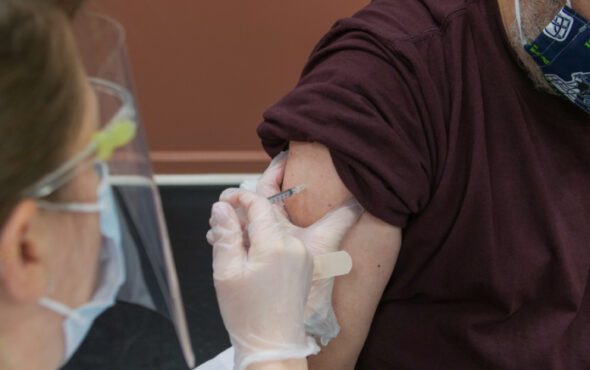
The first participant screenings are set to get underway soon for a first-in-Africa clinical trial of a messenger RNA (mRNA) HIV vaccine antigen.
Biotechnology company Moderna and non-profit scientific research organisation IAVI made the announcement on 18 May, confirming that the trial will build on progress made in previous HIV vaccine research.
It is set to take place at the Center for Family Health Research (CFHR) in Kigali, Rwanda, and The Aurum Institute in Tembisa, South Africa.
Findings released earlier this year showed that data from the Phase 1 clinical trial IAVI G001 safely induced the targeted immune response in 97% of people who were vaccinated with the HIV immunogen eOD-GT8 60mer as a recombinant protein.
The current trial, dubbed IAVI G003, is going to build on these findings and is expected to see 18 healthy, HIV-negative adult volunteers receive two doses of eOD-GT8 60mer mRNA, which, according to Moderna’s press release, “contains a portion of the viral sequence and cannot cause an infection with HIV.”
Mark Feinberg, M.D., Ph.D., president and CEO of IAVI, said that “mRNA technology has the potential to accelerate the development of a safe, effective, affordable, and durable HIV vaccine for use throughout the world.”
mRNA technology was used in Moderna’s highly effective COVID-19 vaccine and helps the body make proteins that trigger immune responses.
First participant screenings are soon to start for a Phase I clinical trial of an #mRNA #HIV vaccine antigen (mRNA-1644) at the Center for Family Health Research (CFHR) in Kigali, Rwanda, and The @Auruminstitute in Tembisa, South Africa.https://t.co/wy80tAqE2I pic.twitter.com/ORgJh0o1HC
— Moderna (@moderna_tx) May 18, 2022
“The immunogen eOD-GT8 60mer is designed to be part of an eventual multi-step vaccination regimen that will stimulate an immune response to elicit bnAbs that neutralize, or block, HIV infection,” Moderna and IAVI explained in their statement. “On its own, eOD-GT8 60mer will not lead to this outcome, but IAVI G003 will yield important safety and immunogenicity data about this vaccine antigen in a population of healthy adults residing in the part of the world most severely affected by HIV.”
Those enrolled in the trial will be monitored for six months after receiving their last dose, with their immune responses being studied to see if the desired responses were achieved.
“With our mRNA technology and IAVI’s discovery and development expertise, we are looking forward to advancing a novel approach to overcome some of the longstanding hurdles to developing a protective HIV vaccine,” said Stéphane Bancel, CEO of Moderna.
“Moreover, we are grateful for the opportunity to work in partnership with researchers and scientists from communities heavily burdened by HIV. Moderna’s HIV vaccine development program, together with our portfolio of COVID-19, Zika, and Nipah programs, advances 4 of the 15 priority vaccine programs we committed to develop by 2025, targeting infectious diseases that threaten global health.”
IAVI G003 is being supported by the US President’s Emergency Plan for AIDS Relief (PEPFAR) through the United States Agency for International Development (USAID), with additional support coming from the Bill & Melinda Gates Foundation.



